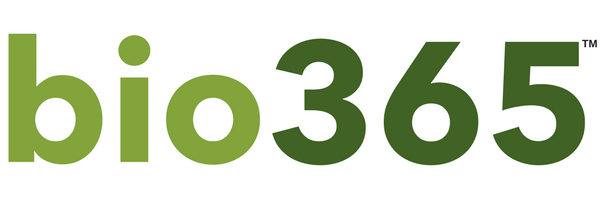Why Tariffs Impact bio365 Less than Other Growing Media Companies
/While much of the economy is unstable right now with uncertainty surrounding tariffs, the team at bio365 can confidently say that we (and our customers) will be less affected by tariffs than our competitors (and their customers) will be.
We know this because bio365 is different from other growing media companies. Here are three key reasons that prove it.
1. Where bio365 Manufactures Its Growing Media
bio365 growing media is manufactured in the USA.
The latest tariffs have been used as a tool to try to incent companies to bring manufacturing back to the United States along with jobs and wages. In this regard, bio365 is unaffected by the tariffs, because all of our growing media is proudly manufactured in the USA in our Cortland, New York factory. Furthermore, we pay living wages to our entire team of American employees.
For comparison, many competitors’ coco-based growing media is made and packaged entirely in India by Indian workers, and then, it’s shipped to the United States for sale to growers. This is what the tariff targets, and it’s disastrous.
On the other hand, bio365 already pays for American rent and American labor. It’s already factored into our prices, and that won’t change. For bio365, only the cost of coco, itself, is tariffed, which is not that bad.
2. How bio365 Growing Media is Made
bio365 growing media is not a commodity media.
As explained above, the tariffs will hurt companies that are making their growing media cheaply – like those packaging inexpensive coco in India – and shipping it to the United States for sale as is. At bio365, we refer to this type of growing media as commodity media. By definition, a commodity is a raw material or primary agricultural product that can be bought and sold, and that’s exactly what coco that is simply packaged and resold is. Nothing is added to it or done to it at all.
To reiterate, bio365 growing media is not a commodity media. We bring the quality coco inputs that we purchase into our manufacturing plant, modify them, add value to them through our patented and proprietary processes, and make something far better than the individual inputs that we started with.
Because of the value bio365 adds to the inputs we use to make our growing media, we’re more insulated from the effects of tariffs than many of our competitors.
3. How bio365 Sources Inputs for Its Growing Media
bio365 sources coco and other inputs from multiple countries.
Since bio365 has the ability to source inputs from more than one country, we can look at other countries to source from at lower tariffs as needed. For example, if coco tariffs in India are high, we could increase the amount we buy from the Dominican Republic.
In other words, we already have relationships, suppliers, and options. Since we manufacture our growing media in the USA, we can change suppliers as needed or work with a few countries at the same time with zero disruption to business.
Our competitors can’t do the same thing because their manufacturing and packaging are tied to where they source their inputs. The company that sells cheap coco-based growing media can sell it for such a low price because it’s low-quality coco that is made and packaged in India. If that coco is tariffed, the company has no other option but to pay the tariff and pass it on to customers through higher prices because there isn’t another source to get the coco, package, and ship it.
Key Takeaway – bio365 and Our Customers Don’t Need to Panic About Tariffs
The good news in the short-term is, bio365 has plenty of coco and other inputs on hand, so tariffs won’t affect anything until the second quarter of 2025. Until then, it’s business as usual for our customers. What happens after that? There is no need to panic and plenty of time for our team to prepare.
Thanks to the three reasons discussed above, bio365 and our customers are well-insulated from many of the effects of the tariffs we’ve been seeing, but we’re still doing our due diligence. We’re getting all of our suppliers lined up, working all of the numbers, and ensuring that no matter what happens we always make the best growing media and put growers first.

